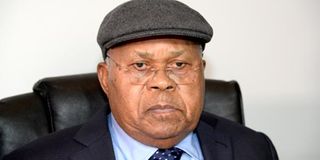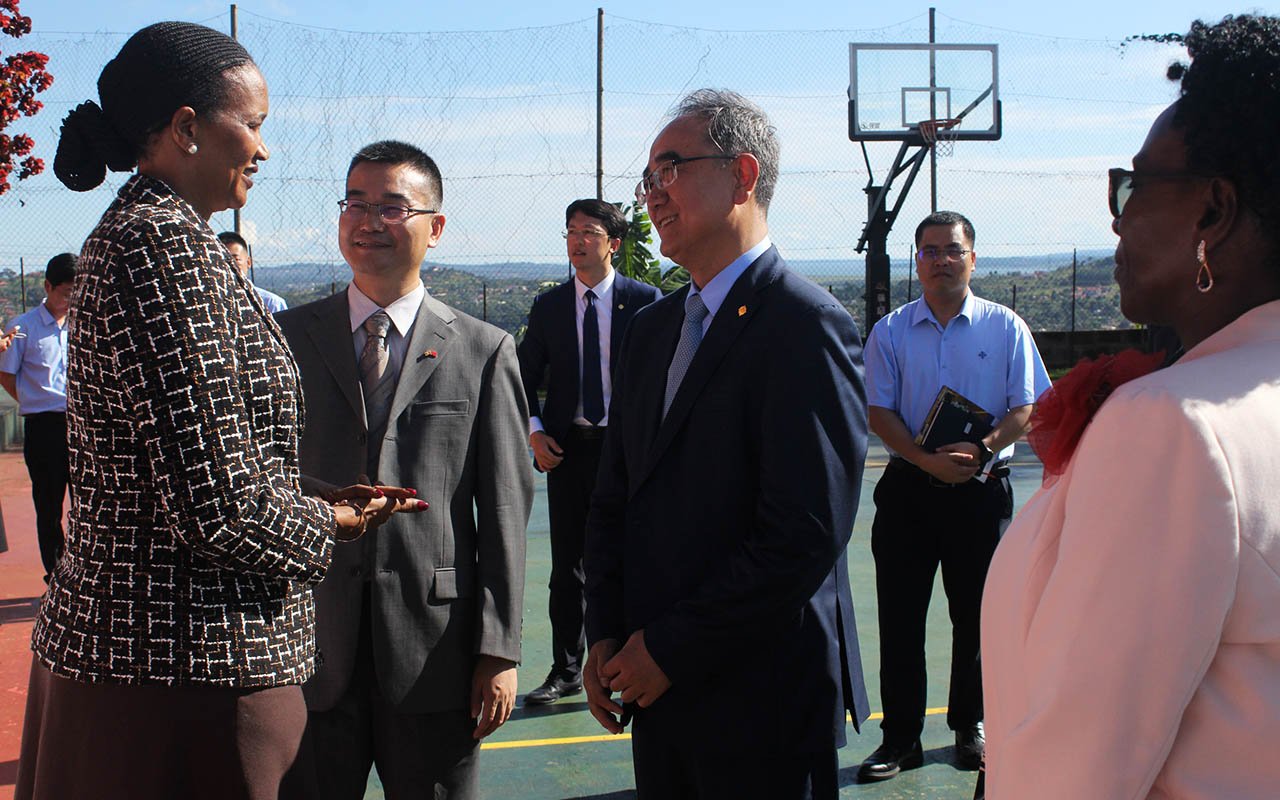Congo at crossroads as opposition chief Tshisekedi dies

President of the opposition party Union for Democracy and Social Progress (UDPS) Etienne Tshisekedi in Genval, outside Brussels recently. Tshisekedi died on February 1, 2017 at the age of 84 in Brussels, where he had flown for medical treatment, his political party said. AGENCIES PHOTO
What you need to know:
- The Tshisekedi supporters were struggling to take in the news their chief was gone.
- Belgian Foreign Minister Didier Reynders described Tshisekedi as a "remarkable political figure".
Long time DR Congo opposition chief Etienne Tshisekedi died Wednesday at the age of 84 in Brussels, as talks aiming to end the nation's political crisis were under way in Kinshasa.
"President Tshisekedi died today... in Brussels," Bruno Tshibala, an official from his Union for Democracy and Social Progress (UDPS) party, said of the burly figure who had remained largely out of sight in recent years due to frail health.
Tshisekedi, who had only flown from Kinshasa to the capital of former colonial power Belgium on January 24, for medical treatment, died at 5:42 pm (1642 GMT), Tshibala said.
After two years of medical treatment in Belgium, Tshisekedi had made a triumphant return in July with hundreds of thousands of people taking to the streets to welcome him home.
The opposition coalition he headed is negotiating the next steps in a power-sharing deal agreed on New Year's Eve to avoid fresh violence after President Joseph Kabila refused to step down at the end of his mandate in December.
Tshisekedi's death swiftly brought the country's tensions to the fore in Kinshasa as police fired tear gas on a crowd of his supporters who had gathered to mourn.

Supporters of late opposition chief Etienne Tshisekedi are gathered in front of his house in Limete near Kinshasa, on February 1, 2017, following the announcement of his death earlier today.
About 100 supporters were out in the open when security forces moved in, and dozens took refuge inside his party's headquarters to escape the gas, an AFP journalist said.
Eventually those inside were forced to leave after a police officer threatened to open fire at them.
'Our leader is dead'
The Tshisekedi supporters were struggling to take in the news their chief was gone.
"Our leader is dead. We have no other leader, like Tshitshi, who can fight without the need for guns. How could he die in Belgium?" asked UDPS activist, Yves, using Tshisekedi's nickname.
The power-sharing deal, brokered by the country's influential Roman Catholic bishops, allows Kabila to stay in office until late 2017 in tandem with a transitional body and a new premier, yet to be agreed.
Before his death, the UDPS said Tshisekedi would return to DR Congo soon to "take up his historic responsibilities" but there had been great concern for "the Old Man", as he was affectionately known
Voters in DR Congo were originally to have chosen a new president in 2016, but the authorities said the electoral registers must be revised, a huge enterprise in a country almost the size of western Europe.
And in a highly controversial ruling, the constitutional court said Kabila could remain in office until an election was held.
The ruling fed opposition fears that he planned to amend the constitution to allow him to run for a third term.
Kabila, 45, has been in power, in one of the least developed countries in the world, since the 2001 assassination of his father Laurent at the height of the Second Congo War.
Belgian Foreign Minister Didier Reynders described Tshisekedi as a "remarkable political figure".
His "last fight (...) for the constitution and democracy culminated in the New Year's Eve agreement," Reynders said in a statement, adding that "Belgium joins forces with the Congolese people in their grief and their desire to see his work bear fruit".




